Focus
Your Present Location: HOME> Focus-

Liu Zhiqin: More support for flood relief reaches Henan
Cities in Henan Province are recovering from flooding as support continues to arrive. China says the coronavirus lab leak hypothesis is against science. And the Tokyo Olympic Games open today.
2021-07-26 -
Martin Jacques: If US-China competition is not a new cold war, then what?
It is four and a half years since previous US President Donald Trump assumed office, marking the beginning of the US assault on China. The first six months of Biden's presidency have seen a continuation of America's anti-China stance. The fundamental line of continuity between Trump and Biden is their position on China. This supports the argument that America's shift on China, far from being some kind of Trumpian quirk, is in fact deeply rooted in American politics and society. We should not be surprised by this. The benign period of cooperation between the US and China from 1972-2016, 44 years altogether, was underpinned on the US side by two propositions: first, that China's economic rise would never challenge America's economic ascendancy; and second, that as China modernised, it would inevitably Westernise and in time become a Western democracy. By 2016, it was patently obvious that both assumptions were wrong. China's economy was already on a par with America's; and China's politi
2021-07-23 -
Gideon Rachman: China is still a long way from being a superpower
Does China want to be a superpower? In the White House, at least, there seems to be little doubt. Rush Doshi, director for China on President Joe Biden’s National Security Council, has just published a book in which he argues that Beijing is pursuing a “grand strategy” to “displace American order” and become the world’s most powerful nation.
2021-07-23 -
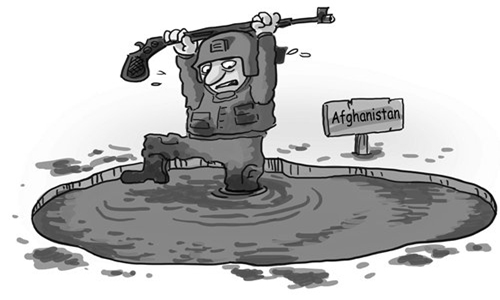
Ding Gang: Afghanistan pullout signals US faith is losing ground
One Sunday in late fall, I was driving with a friend to Newtown, a small town in Connecticut. The editorial staff called and told me that American troops were already on the ground in Afghanistan. They asked me how the local people were reacting. The quiet life in this small town is a stark contrast to the war thousands of miles away in Afghanistan. I even remember when I interviewed two high school students in New York, they couldn't even find Afghanistan on a map.
2021-07-22 -
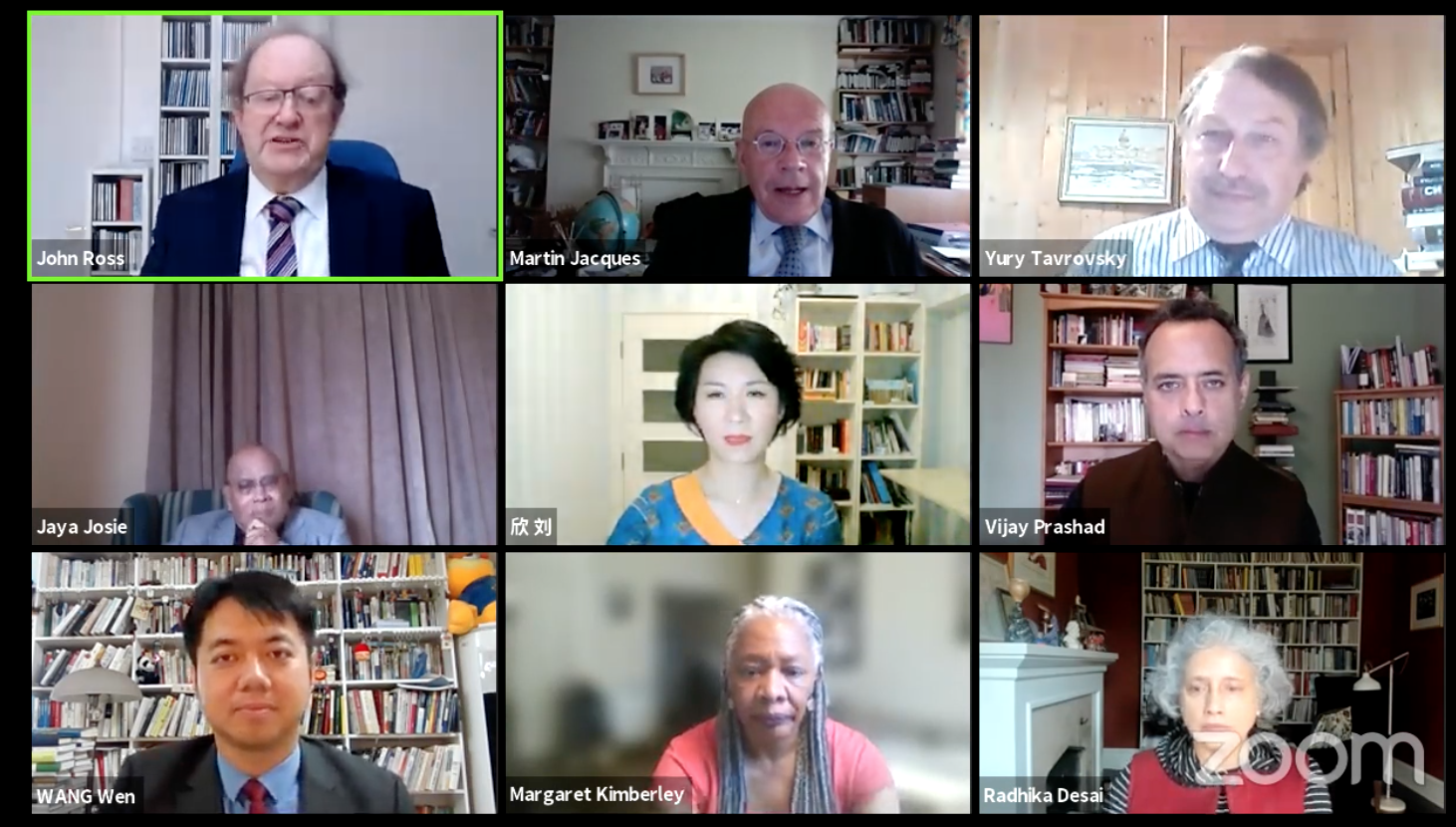
US can learn from China’s century of lessons
The past 100 years have witnessed the how the Communist Party of China (CPC) has risen from scratch to making outstanding contributions and transformations for Chinese people's lives. It is has also been a period with dramatic changes in ties between China and the West. What lies behind these changes? How to make the world understand the CPC? Leading experts from both China and abroad discussed these issues at a webinar themed, "The Past 100 Years: China, the West and the World," co-hosted by the Chongyang Institute for Financial Studies, Renmin University of China (RDCY), and the No Cold War campaign on Wednesday.
2021-07-22 -
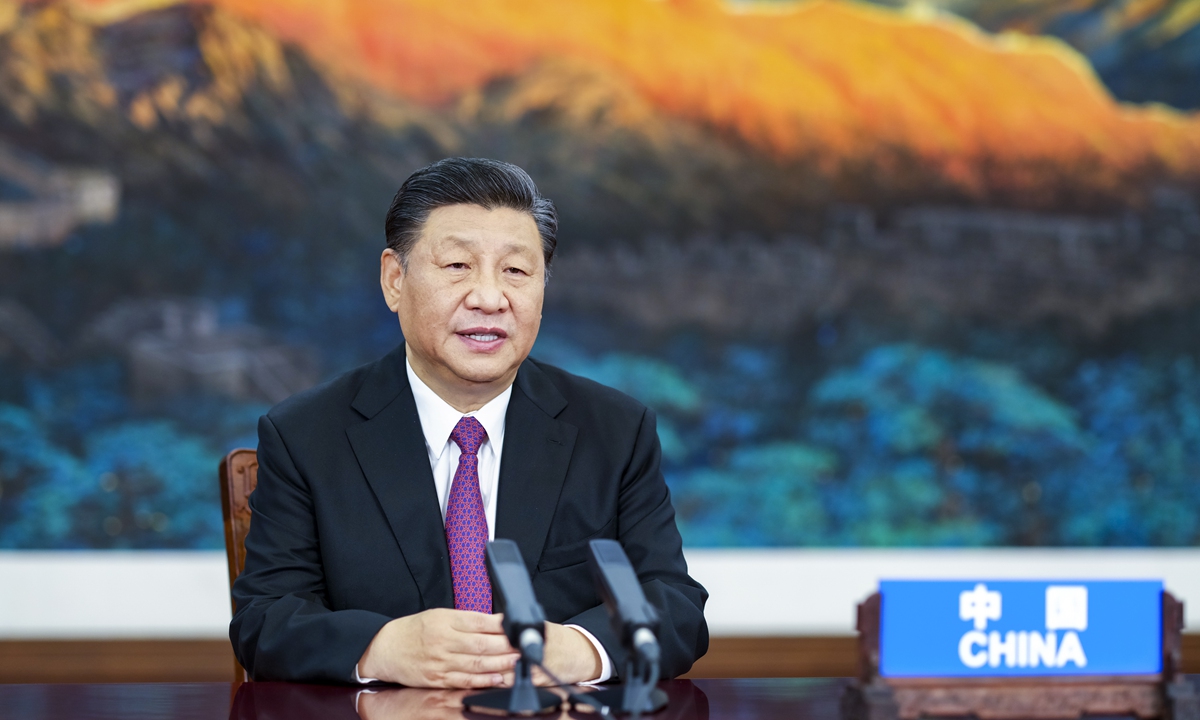
Wang Yiwei: China urges unity, announces $3b aid at APEC; US eyes splitting region
China has provided more than 500 million doses of vaccines to other developing countries, and will provide another US$3 billion in aid over the next three years to support COVID-19 response and economic and social recovery in other developing countries, Chinese President Xi Jinping said at the APEC Informal Economic Leaders' Retreat via video link in Beijing on Friday night.
2021-07-21 -

Liu Dian: Task Force enters Didi Offices to begin probe
A task force of seven ministries,including the Cyberspace Administration of China (CAC),the public security ministry andthe national security ministry,entered Didi Chuxing’s offices yesterday to conduct the country’sfirst cybersecurity review.
2021-07-21 -

Liu Zhiqin: Xinjiang's cotton sector picks up
Cotton factories in Xinjiang say business has picked up this year thanks to new customers in the Chinese market. The Chinese economy grew by over 12 percent in the first half of 2021. And the 44th session of the World Heritage Committee is kicking off in Fuzhou.
2021-07-19 -
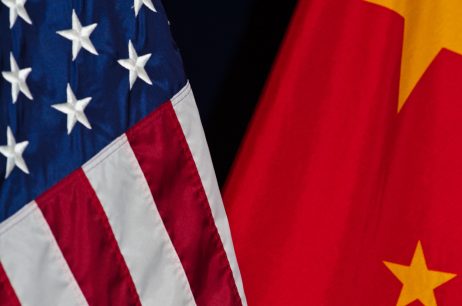
Chen Dingding: The US Needs a New China Strategy
The United States is currently facing a China policy dilemma. Since President Joe Biden took office, Washington has been more than eager to demonstrate the importance of strategic competition with China. Unfortunately, as the administration has approached the first half year of its tenure, major confusion still exists among senior staff and policymakers in Washington about the best way to deal with China. The United States needs a better strategy, or at least a clear elaboration on its approach to China.
2021-07-19 -
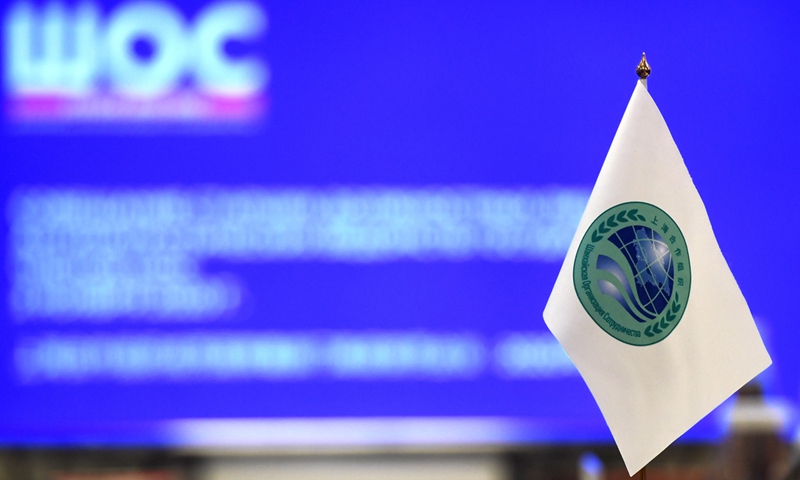
Wang Yiwei: Expanding SCO can boost regional integration and post-COVID recovery
This year marks the 20th anniversary of the establishment of the Shanghai Cooperation Organization (SCO), and the intergovernmental organization is expected to see another expansion by granting the status of dialogue partners to Saudi Arabia and Egypt, a decision that was approved at the recent meeting of the SCO Council of Foreign Ministers in Dushanbe, Tajikistan.
2021-07-16 -
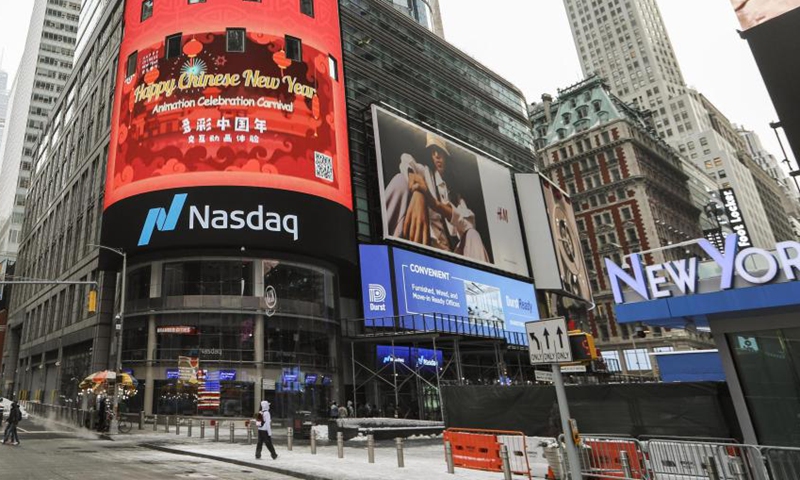
Dong Shaopeng: Chinese firms eye home IPOs as US listings lose luster amid regulatory clashes
With overseas listings by Chinese companies coming under closer domestic scrutiny amid the regulator's push for stronger data protection, local businesses that want to raise funds are focusing on the home capital market rather than US IPOs, market watchers said.
2021-07-15 -
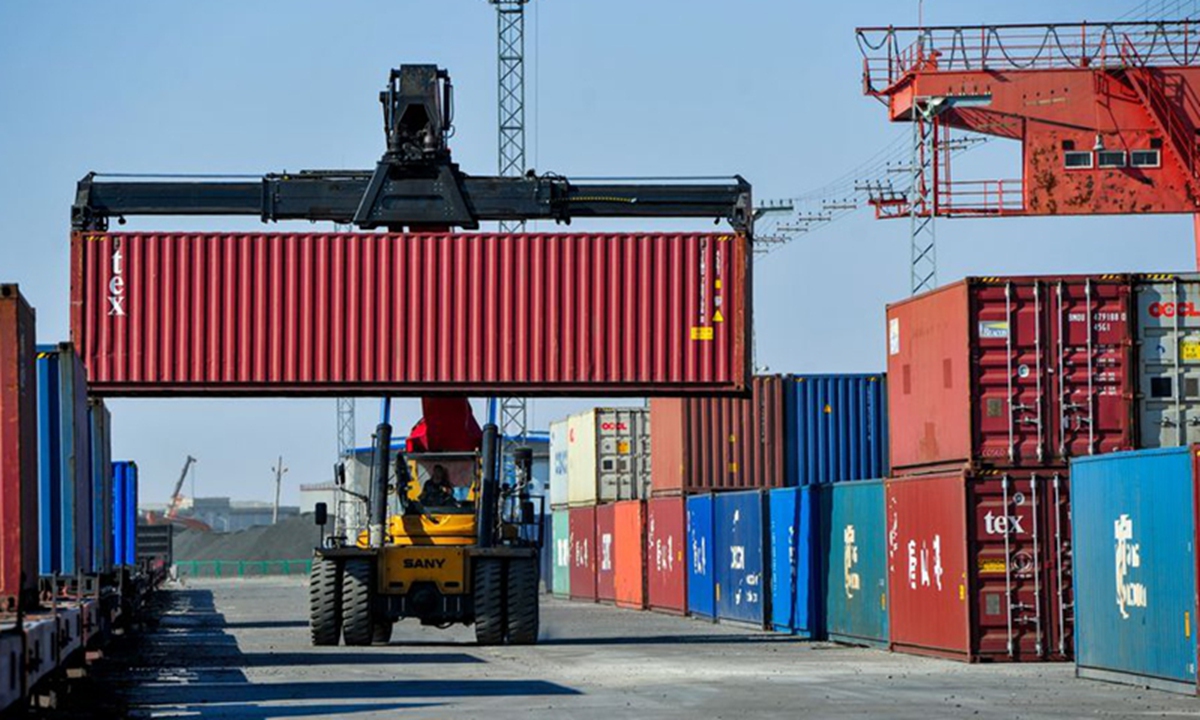
Liu Zongyi: China-India trade keeps high growth in H1, but down from January-May figure
China's trade with India in the first half of this year showed an upward trajectory but edged down 7 percentage points from the January-May period, probably due to the easing COVID-19 situation in India and a decline in iron core trade, experts said.
2021-07-15 -
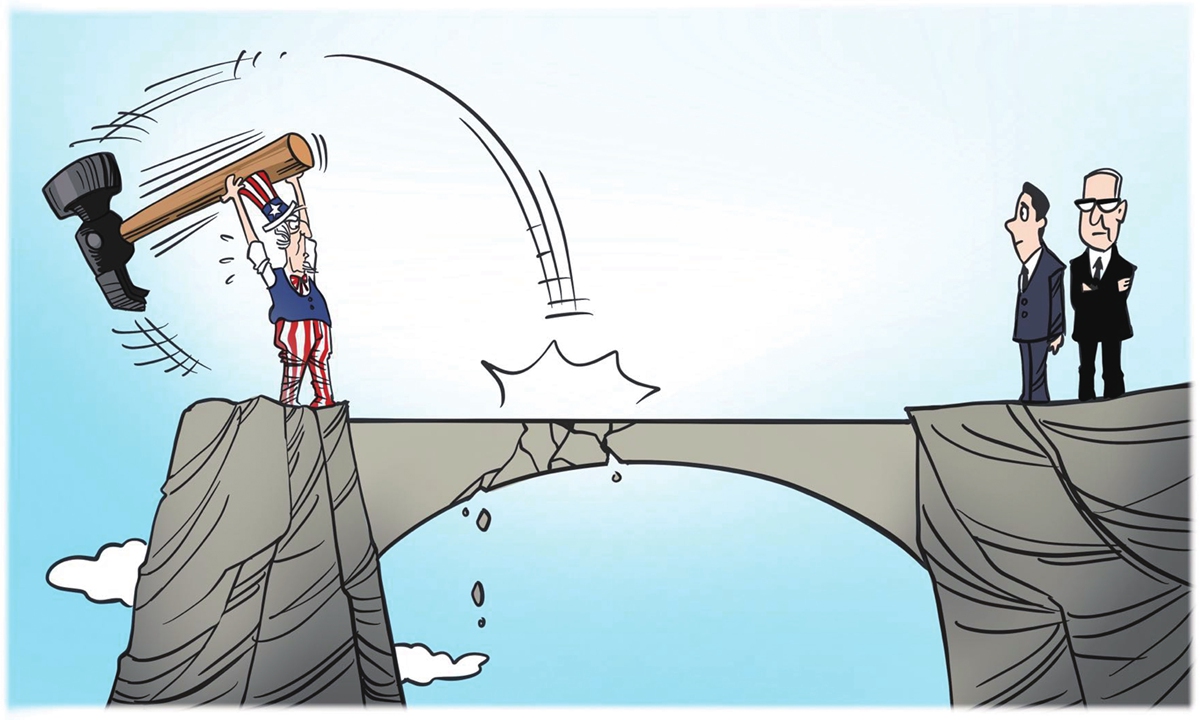
Ding Gang: US capital will only isolate themselves if lay siege to China for global market
The future of the US' strategic focus will be to enhance its leading position in high-tech field, according to United States Innovation and Competition Act of 2021. Yet the US ultimate goal remains unchanged: consolidating and expanding US capital groups' possession of global markets.
2021-07-15 -
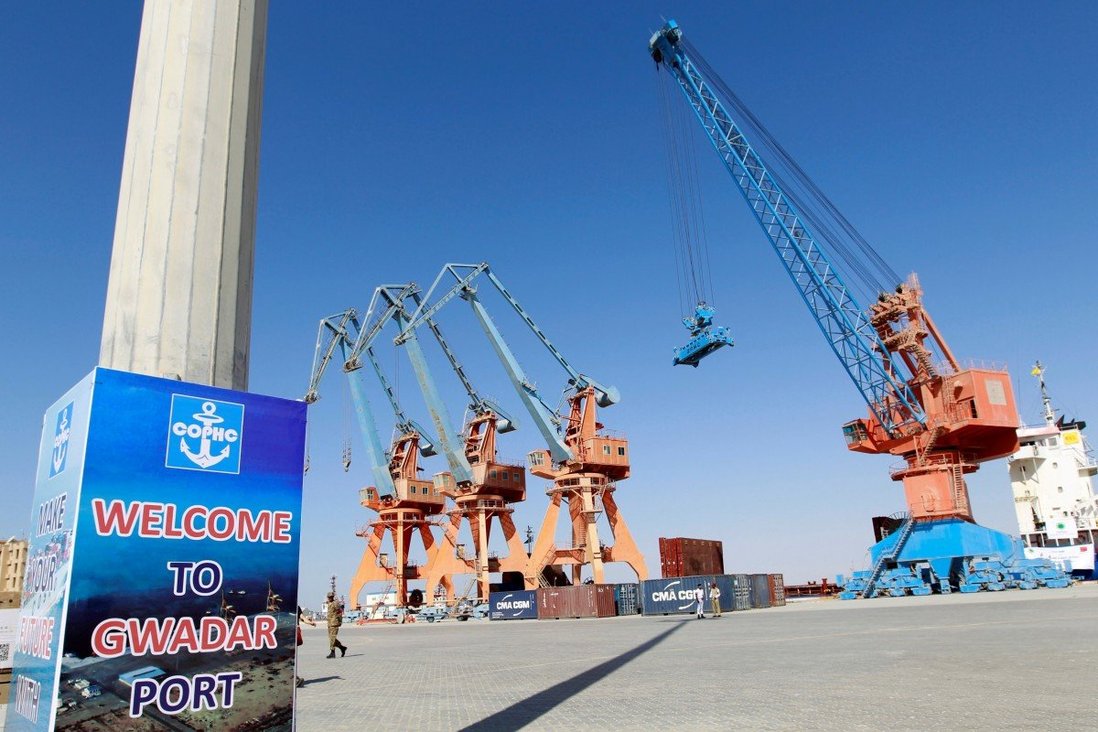
Zhou Rong: Pakistan seeks peace with Balochistan rebels, with China and Afghanistan on its mind
Pakistan’s Prime Minister Imran Khan has taken tentative steps to initiate peace talks with separatist rebels in its southwestern Balochistan province, home to the Chinese-run deepwater port of Gwadar, amid the threat of insurgencies fuelled by civil war in neighbouring Afghanistan.
2021-07-15 -
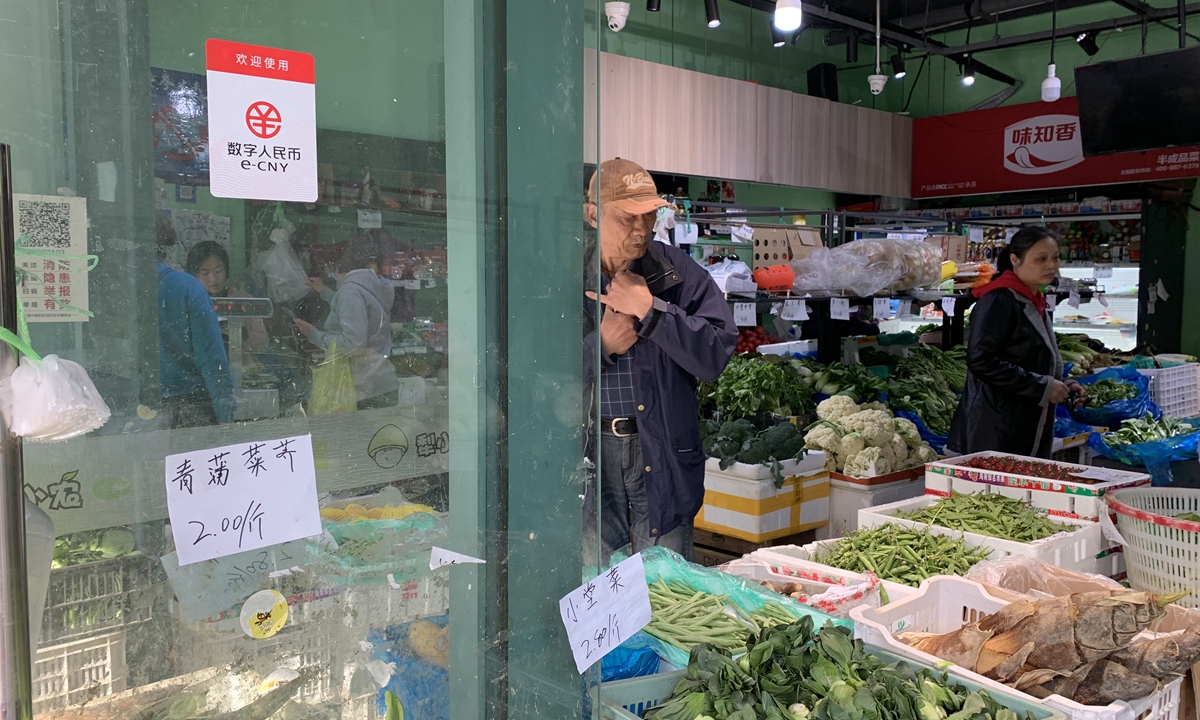
Liu Dian: China accelerates digital yuan push amid rising global competition
Chinese economists have refuted some overseas economists' allegation that the use of the digital yuan is a threat, saying China's currency reform won't bring fundamental change to global finance, although it may lead to less dominance of the US dollar.
2021-07-14 -

Wang Yiwei: Time to abandon cultural chauvinism
At the former Kamloops Indian Residential School in British Columbia, Canada, investigators recently uncovered a mass grave with the remains of 215 children. After Canada passed the Indian Act in 1876, nearly 100 such indigenous boarding schools were opened across the country. The schools were aimed at assimilating aboriginal children and turning them into "civilized people" through education. According to NPR, this schooling system has its roots in the U.S. policy toward Native Americans.
2021-07-14 -

Zhou Rong: Extension of CPEC into Afghanistan to boost local exports, journey of peace: analysts
As officials from China, Pakistan and Afghanistan revealed an inclination to extend the China-Pakistan Economic Corridor (CPEC), a flagship Belt and Road Initiative (BRI) project into Afghanistan, experts said that such projects could help boost Afghanistan's exports, which is conducive to the country's journey of peace, but the feasibility of the project depends on whether the Afghan government and Taliban forces can reach a consensus on protecting overseas investment.
2021-07-14 -
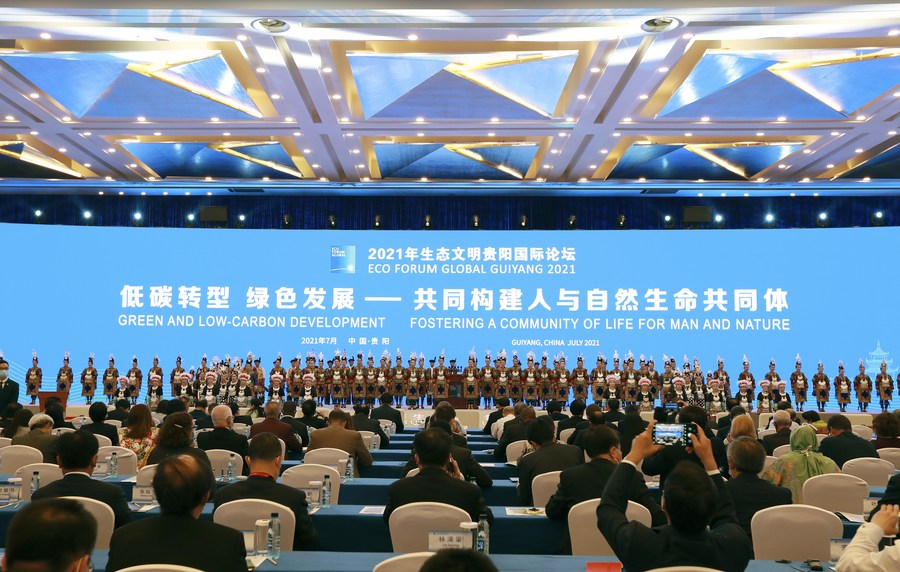
China goes full throttle on green energy transition to achieve carbon neutrality
A global forum on ecological civilization, Eco Forum Global Guiyang 2021, opened Monday in Guiyang, capital of southwest China's Guizhou Province.
The forum will witness a range of online and offline activities. Lots of guests are expected to join the event online, while around 500 are attending the forum on site.2021-07-13 -
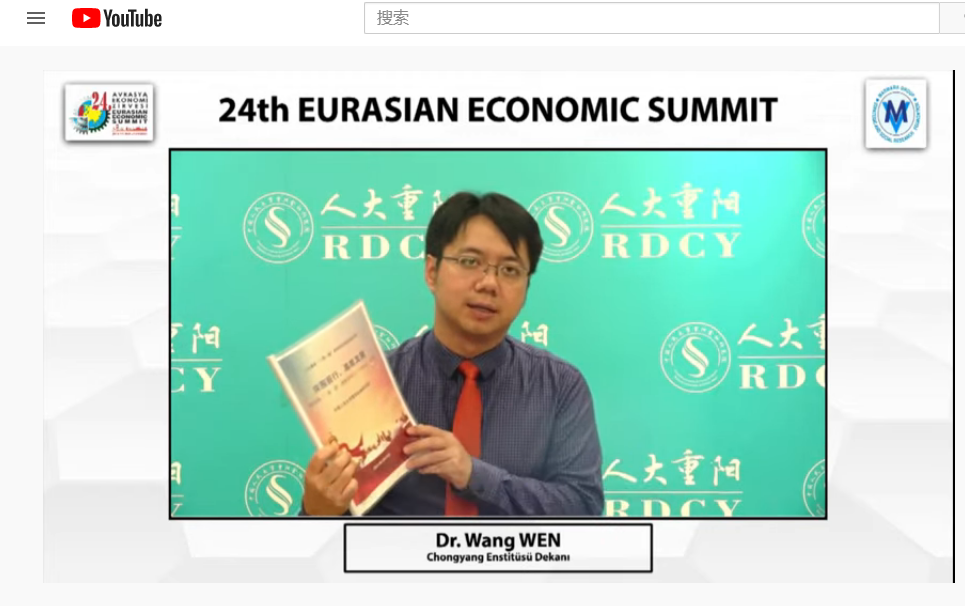
Wang Wen: Working Together to Promote the Integration of Eurasia
On July 9, 2021, Wang Wen, Executive Dean of Chongyang Institute of Financial Studies, Renmin University of China, was invited to deliver a keynote speech at the 24th Eurasian Economic Summit. The following is the full text of the speech.
2021-07-13 -

Wang Yiwei: History answers why CPC succeeds in China
China held the Communist Party of China and World Political Parties Summit on Tuesday with the aim of strengthening mutual understanding and learning, so as to promote national and international development for the well-being of the people across the world.
2021-07-13
























































































 京公网安备 11010802037854号
京公网安备 11010802037854号





